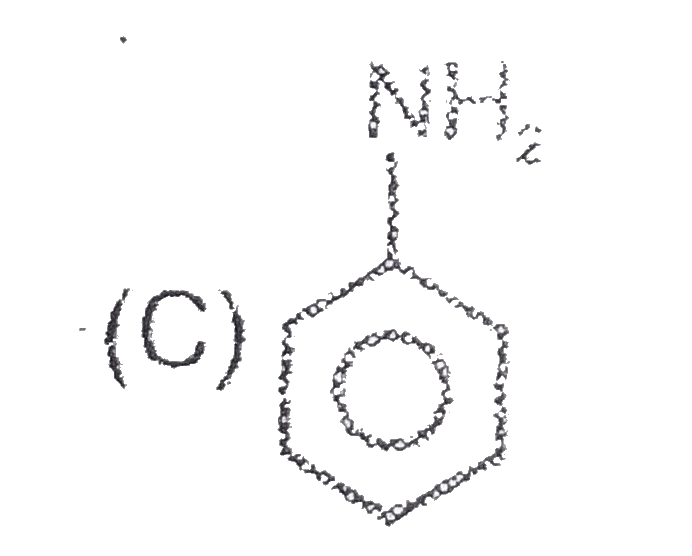Which of the following will react with CHCl3+alc. KOH ?
Adenine and lysine
Thymine and proline
Adenine and thymine
Adenine and proline
The correct Answer is:C
To determine which of the given compounds will react with CHCl3+alc.KOH, we need to understand the nature of the reaction involved. This reaction is known as the Carbylamine reaction, which specifically occurs with primary amines to form isocyanides.
1. Understanding the Carbylamine Reaction:
- The Carbylamine reaction occurs when primary amines react with chloroform (CHCl3) in the presence of alcoholic KOH. This reaction will not occur with secondary or tertiary amines.
2. Identifying Primary Amines:
- We need to analyze the structures of the given compounds to identify which ones contain primary amines (RNH2).
3. Analyzing Each Compound:
- Adenine:
- Adenine has an amino group (NH2) attached to its structure. Since this is a primary amine, it will react positively in the Carbylamine reaction.
- Lysine:
- Lysine is an amino acid that has two amino groups (NH2) at different positions. The presence of a primary amine means it will also react positively in the Carbylamine reaction.
- Thymine:
- Thymine contains a nitrogen atom but it is part of a secondary amine structure (NH group). Therefore, it will not react positively in the Carbylamine reaction.
- Proline:
- Proline is a cyclic amino acid and contains a secondary amine. Thus, it will not react positively in the Carbylamine reaction.
4. Conclusion:
- The compounds that will react with CHCl3+alc.KOH are adenine and lysine, as they both contain primary amines. Thymine and proline will not react because they contain secondary amines.
Final Answer:
The compounds that will react with CHCl3+alc.KOH are Adenine and Lysine.
- The Carbylamine reaction occurs when primary amines react with chloroform (CHCl3) in the presence of alcoholic KOH. This reaction will not occur with secondary or tertiary amines.
- We need to analyze the structures of the given compounds to identify which ones contain primary amines (RNH2).
- Adenine:
- Adenine has an amino group (NH2) attached to its structure. Since this is a primary amine, it will react positively in the Carbylamine reaction.
- Lysine:
- Lysine is an amino acid that has two amino groups (NH2) at different positions. The presence of a primary amine means it will also react positively in the Carbylamine reaction.
- Thymine:
- Thymine contains a nitrogen atom but it is part of a secondary amine structure (NH group). Therefore, it will not react positively in the Carbylamine reaction.
- Proline:
- Proline is a cyclic amino acid and contains a secondary amine. Thus, it will not react positively in the Carbylamine reaction.
- The compounds that will react with CHCl3+alc.KOH are adenine and lysine, as they both contain primary amines. Thymine and proline will not react because they contain secondary amines.
The compounds that will react with CHCl3+alc.KOH are Adenine and Lysine.
Topper's Solved these Questions
Similar Questions
Knowledge Check
Which of the following reacts with CHCl3+KOH ?
AAdenine & uracilBadenanine & lysineCadenine and thymineDuracil & thymineWhich of the following metals will react with NaOH and KOH to liberate hydrogen gas?
AZn, Al, Fe and MgBAl, Fe, Mg and SnCZn, Sn and AlDFe, Mg and AlWhich of the following will not give positive test with CHCl3/KOH.
ACH3−CH2−NH−CH3BCH3−CH2−CH2−NH2C DCH3−CH3∣CH−NH2
DCH3−CH3∣CH−NH2
Which of the following reacts with Hinsberg reagent to from a product soluble in KOH.
View SolutionWhich of the following will not gives positive test with CHCl3/KOH ?
View SolutionProuduct of the following reaction will be CH3−CH2−CHO+CH3−NO2alc.KOH−−−−−→
View SolutionArrange following Amines for rate of reaction with CHCl3+KOH ?

View SolutionIn which of the following pairs both membes on heating with alc. KOH result in the formation of same alkene as major product?
View Solution

